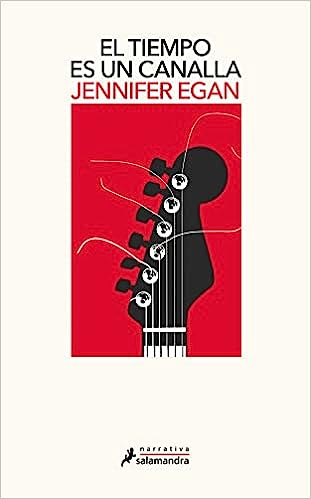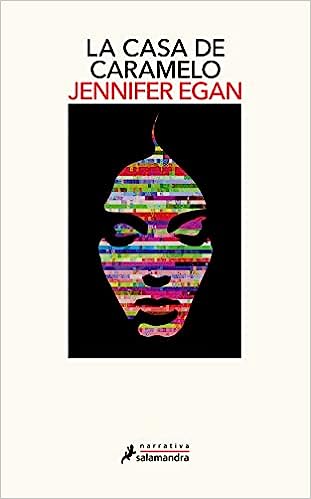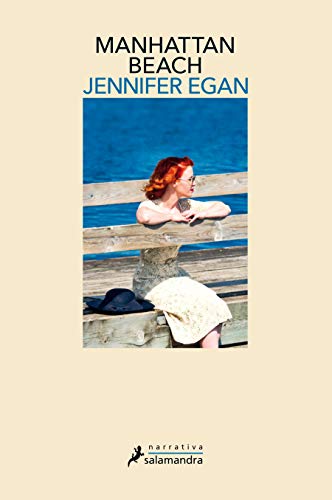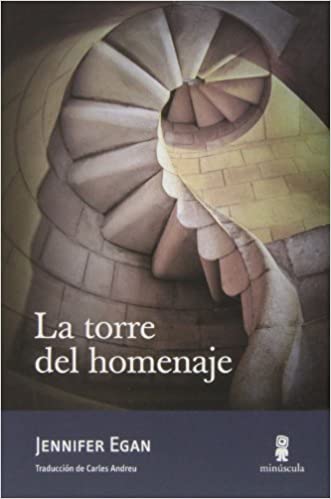If there is an author pending further follow-up by publishers in Spain, that is Jennifer Egan. It is also true that in the scoring of some of her works that have come down to us, the risk of a great writer is guessed overturned at times in sophistication and symbolism. Resources that denote its great narrative capacity but that rises to the risk of the misunderstanding of the great reading mass.
Even so, there is no doubt that we will soon be able to enjoy his complete bibliography. In the same way that many other unclassifiable entry writers end up winning a parallel approval of critics and readers.
By raising some tedious similes in search of some kind of synthesis, it could be said that Egan is a mixture between the Paul auster more introspective past through the screening of an imaginary a la Woddy Allen. In other words, studiously vitalist approaches sifted by a humor that revolves around the miseries of existence and the discovery that the best thing is perhaps always the compilation of orgasms that you have been able to achieve in life.
Of course, beyond the analogies, if I insist on the value of this author, it is also because of the originality and the difference. Because that's what makes Jennifer Egan's true heritage. The game between reality and fiction takes a very special form in her narrative proposal, or at least in several of her works. It is a collage where the characters come and go; they occupy their lives and visit ours; they assault our plane and drag us to theirs.
A magical synthesis, a surprising encounter on the diffuse threshold that separates (in his case rather combines) the story told and its mental composition. Reality is nothing more than our own fiction. And we probably aren't much more relevant than the characters we read about. If we occupy a little more space...
Jennifer Egan's Top 3 Recommended Books
Time is a scoundrel
Every life has a soundtrack. Sometimes this music may sound demodé, but the lyrics always talk about yourself, sing the same chords that are discordant with the present to remind you that much of your time is over.
Even more so for a guy like Bennie Salazar, loaded with ancient musical glories, nights of excess and a considerable heritage that he would gladly burn in that other me of the past. Around Bennie we meet many other characters who in one way or another interact with him to compose a mosaic between delirious and melancholic.
History itself is not standing still. On each page we place ourselves in a new place to which we later put a time, a moment. Life is what happens while you make plans, as that one said.
But chance, over and above the causality that each one may stupidly consider to be tracing his destiny, links all the grotesque types who intervene as satellites of the novel much more, with that uncontrollable movement of intoxication. Yes, maybe that's what it's about, life like a hangover.
You remember having a good fuck, you smile at how good you had it ... But the question is that, what happened. In a frantic journey from one end of the world to the other, you may feel that you are not moving, but that it is time that is shaking you without hardly moving from the site.
the candy house
It is imperative to continue Egan's work with this sequel postponed until the moment in which reality ends up supporting its plot. A kind of narrative commitment to the future that ends up drawing parallel lines between reality and fiction with an aftertaste of a self-fulfilling prophecy that Egan masterfully attests to.
The Candy House, which culminates Jennifer Egan's ambitious narrative project begun with Time is a Scoundrel (Pulitzer Prize in 2011), tells the story of Bix Bouton, a brilliant IT businessman in downturn who ends up patenting a successful technological tool that It allows us to access and share our memories, and it has seduced thousands of people. With an astonishing variety of narrative resources, Egan focuses on the digital world and social networks and tells the story of various characters looking for a real connection in an increasingly digitalized and hyper-connected world.
manhattan beach
A virtue must always be made out of necessity. And if the need can also serve for the claim, honey on flakes. I mean that feminism necessary in its natural conception of equality.
It is not that the novel becomes an apology for the feminine, in fact it is more than likely that Anna would have preferred not to have to make her way alone, without her only paternal pillar. But things happened the way they happened. And when Eddie disappeared, perhaps consumed by the decadent circumstances of the America of the great crisis, she had to look for a future.
And Anna chose the freedom of the tightrope walker who decides on his own to cross the abyss on a tightrope. But unanswered questions, even when you no longer know if you want to know them, always end up being definitively reconsidered.
Life with his father left some loose ends between the Hudson piers that dot between Harlem and Chelsea. And a city like New York, among so many people, can end up causing coincidences.
It's certainly been a long time since Eddie disappeared, but Anna could never refuse to know why. We strolled the streets of Manhattan's West Side in two stages, during the hard years after the Great Depression when Anna was a child and many years later, when the city and Anna herself believed they had gotten over their worst memories.
Other recommended books by Jennifer Egan
The keep
In the heart of every castle worth its salt (or rather that has been able to maintain itself on its ashlars) stands the keep.
In an eminently combative construction such as a castle, these towers tried to show off power and strength, in addition to offering some extra comforts in case the lord on duty appeared in the place.
The point is, Howie has bought one in Europe and invites his cosmopolitan New Yorker cousin, Danny. The truth is that the cousins would have enough reasons to repudiate each other. Not because of any animosity, but because of the sinister memories shared.
However, removed from that ignominious shared childhood moment, Danny and Howie are willing to give themselves a chance or perhaps clear their consciences. But perhaps the place is not the most suitable. Because Howie's castle houses similar secrets that are perfectly in tune with the fatality of what they have lived together.
This novel ends up being covered with a particular tension towards a suspense never suspected as a plot. Between the labyrinths of memory and those of the castle itself, the truth seems to loom in the background as the ultimate end of a labyrinthine reading whose centripetal force inevitably traps you.




